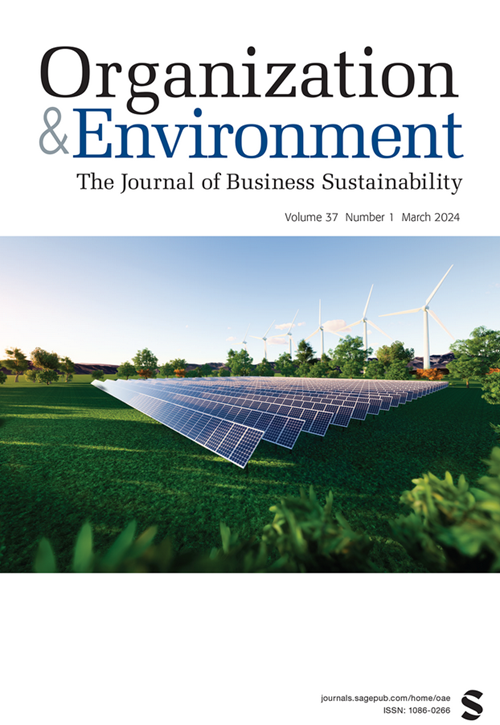Cut Them Loose? Firms’ Response Strategies to Environmental Misconduct by Supplying Firms
IF 7.3
4区 管理学
Q1 ENVIRONMENTAL STUDIES
引用次数: 4
Abstract
Firms are increasingly held accountable for their suppliers’ environmental misconduct and often face significant stakeholder pressure to respond or even end their affiliations with misbehaving suppliers. Despite the importance of the subject, we know little about antecedents to supplier exclusion. In this article, we build on the assumption of stakeholder expectations being a core mechanism—and adopt an expectancy-violation theory lens. Drawing also on complementary insights into signaling theory, we argue that the severity of the misconduct affects the decision to cut ties. Furthermore, we argue that the engagement in environmental partnerships of client firms as well as suppliers moderates this relationship. To test our hypotheses, we use a unique sample of 434 client firm–supplier dyads, including 27 focal firms pressured by Greenpeace to remove “dirty” palm oil suppliers, accused of illegal deforestation. The study’s findings provide contributions to several literature streams related to inter-organizational dynamics and environmental sustainability.放开他们?企业对供应企业环境不当行为的应对策略
企业越来越多地对其供应商的环境不当行为负责,并经常面临利益相关者的巨大压力,要求他们做出回应,甚至终止与行为不端的供应商的关系。尽管该主题很重要,但我们对供应商排除的前因知之甚少。在本文中,我们以利益相关者期望作为核心机制的假设为基础,并采用期望违反理论的视角。根据信号理论的补充见解,我们认为不当行为的严重程度会影响切断联系的决定。此外,我们认为客户公司和供应商在环境合作伙伴关系中的参与调节了这种关系。为了验证我们的假设,我们使用了434家客户公司-供应商的独特样本,其中包括27家焦点公司,它们受到绿色和平组织的压力,要求它们清除被指控非法砍伐森林的“肮脏”棕榈油供应商。该研究的发现为组织间动力学和环境可持续性相关的几个文献流提供了贡献。
本文章由计算机程序翻译,如有差异,请以英文原文为准。
求助全文
约1分钟内获得全文
求助全文
来源期刊

Organization & Environment
Multiple-
CiteScore
11.20
自引率
5.70%
发文量
19
期刊介绍:
Organization & Environment encourages informed discussion about the social roots and consequences of environmental problems and stimulates deeper reflection on the meaning and significance of the natural world. By critically examining the impact of human production and consumption systems on the natural environment, Organization & Environment develops new perspectives on organizations that encourage environmentally sensitive reflection, inquiry, and practice.
 求助内容:
求助内容: 应助结果提醒方式:
应助结果提醒方式:


